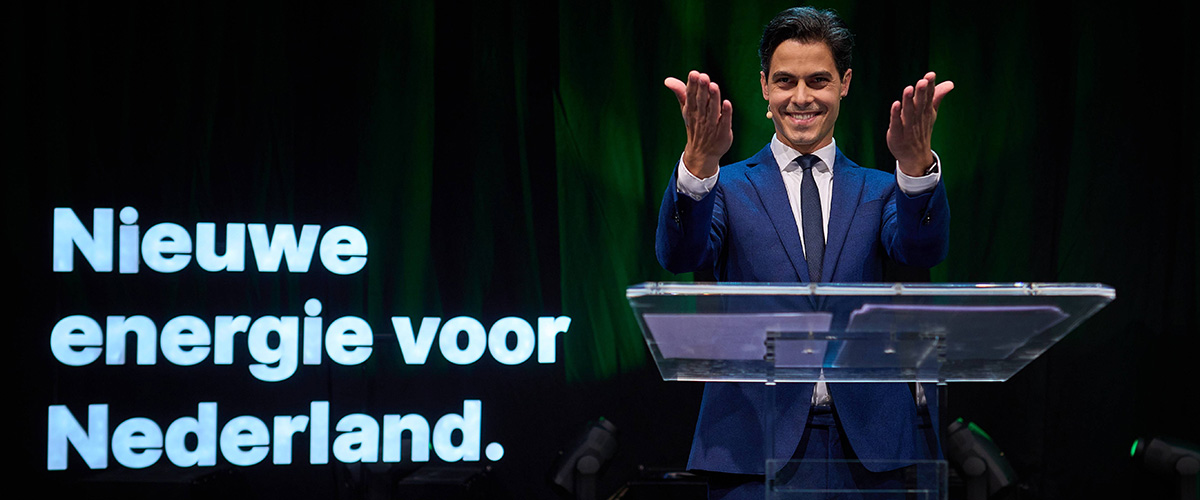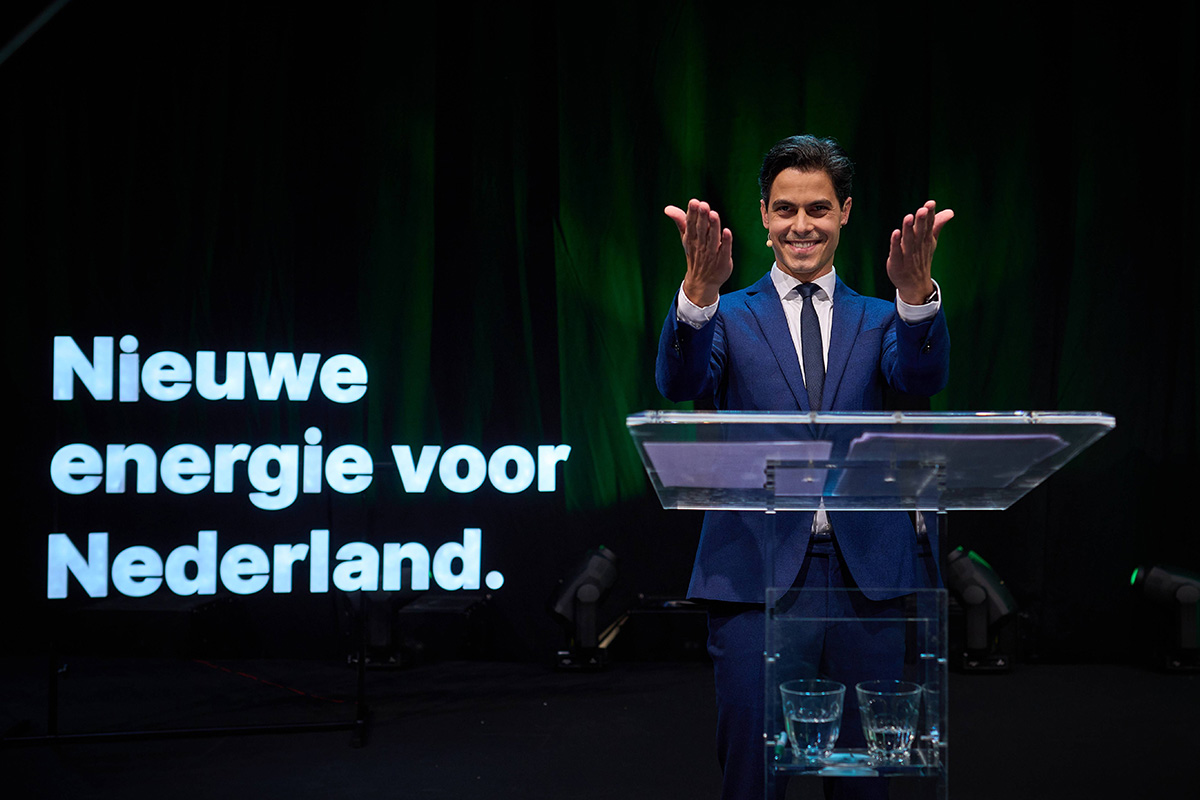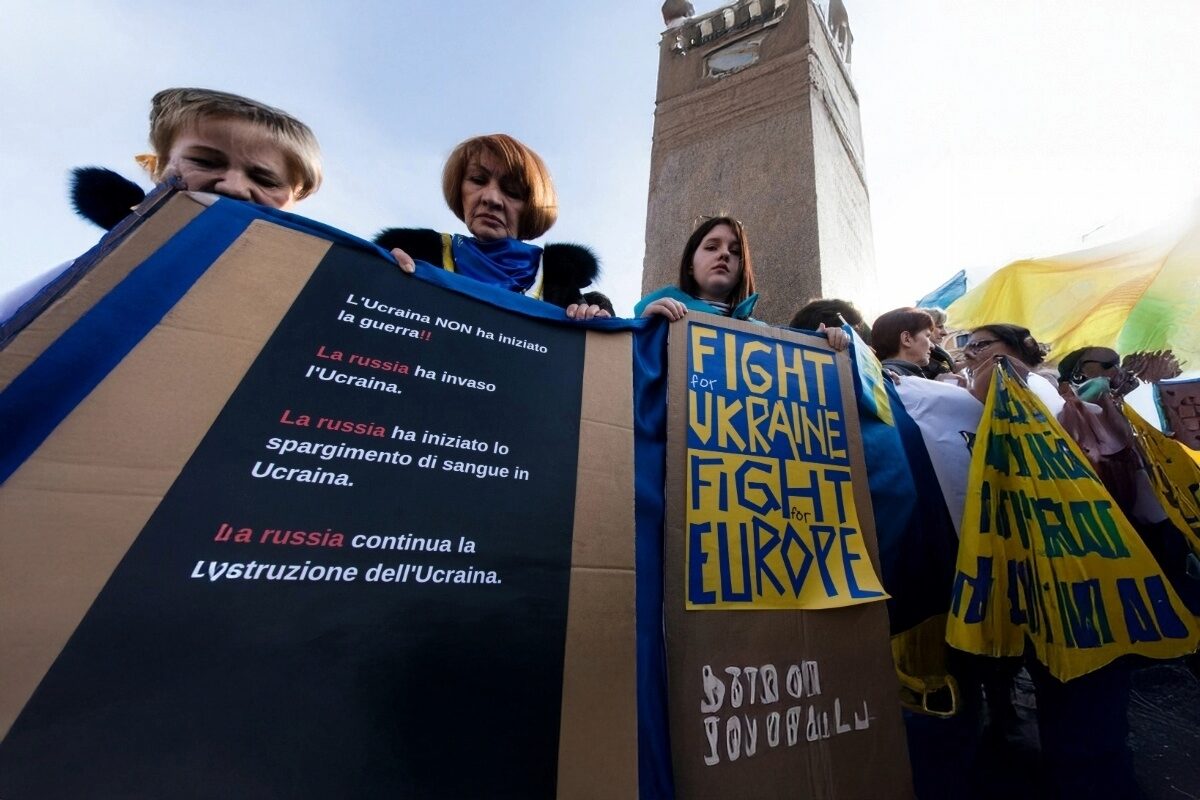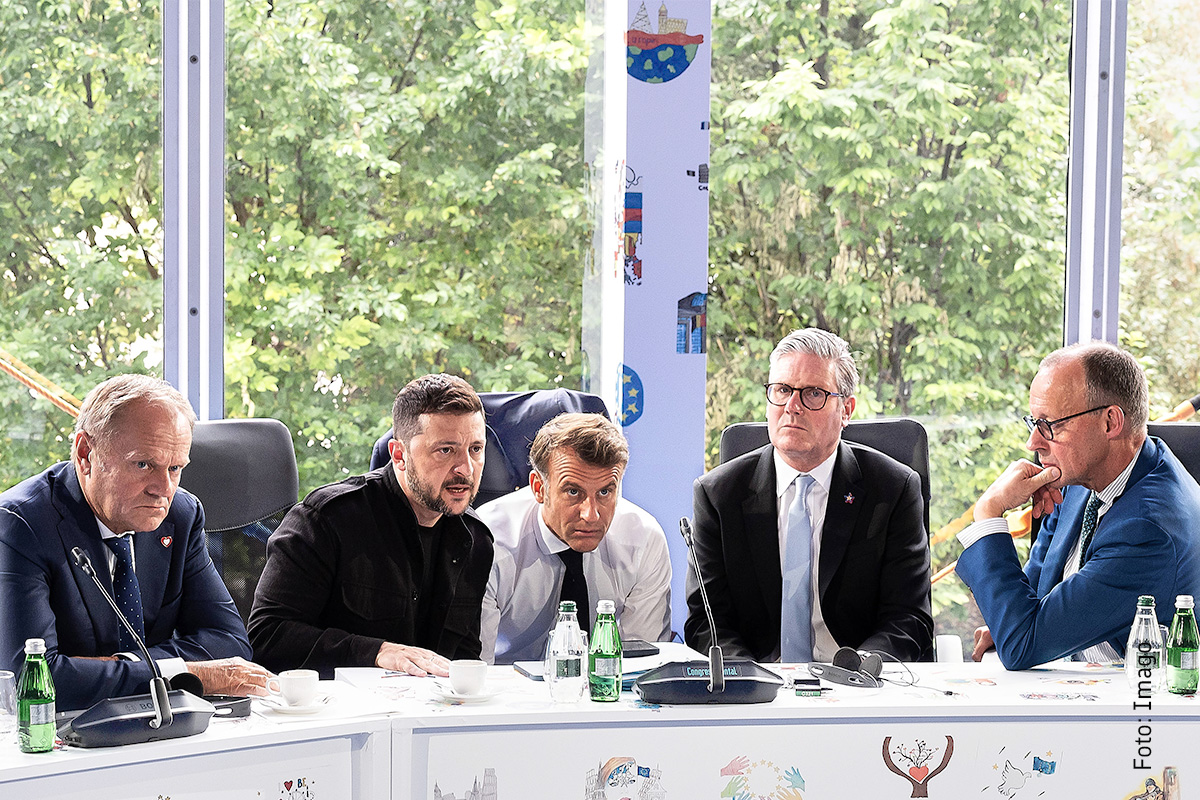A liberal victory in times of crisis — What the Dutch election means for European liberalism

The Dutch elections brought a historic victory for the left-liberal D66 party – but behind this lies a country caught between nativist tendencies, a weakened left, and a center under pressure. Eric Schliesser analyzes what Jetten’s triumph really means – and what lessons Europe’s liberals can learn from it.
In light of the widespread diagnosis of a global crisis of liberalism, the outcome of the Dutch parliamentary elections garnered attention. The Democraten 66 (D66), a liberal party, won and relegated the right-wing populist Partij voor de Vrijheid (PVV) to second place. The vote had become inevitable after the latter’s leader Geert Wilders’ withdrawal of support from the most recent coalition. What are the reasons behind this victory? How should it be interpreted? What can liberals in other European countries learn from it?
In hindsight, Geert Wilders made an unforced error when he withdrew from the first major televised campaign debate of the four front-runners in the polls. After the police arrested terror suspects, Wilders suspended his campaign for security reasons. But he lost credibility when he refused to participate in the debate even after the organizers offered to hold it at a secure, secret location. Wilders’ last-minute replacement, the leader of D66, the youthful Rob Jetten (born in 1987), then resoundingly won the debate. Subsequently, Jetten ran a nearly flawless, positive campaign with the (Obama-esque) slogan, ‘Het kan wél! (It’s possible!). His party ended up with the most votes for the first time in its history.
D66 (founded in 1966) has its roots in a progressive, modernizing, and democratizing rebellion against the vertical ‘pillar system’ of twentieth-century Dutch politics, in which Catholics, Protestants, social democrats, and classical liberal elites ran a paternalistic, spoils system. Ideologically, D66 has always combined social liberalism and radical democratic elements. For many decades, it promoted the introduction of referenda, elected mayors, and the expansion of individual liberty (e.g., abortion, gay rights, euthanasia, etc.).
While D66 has mostly abandoned its democratic populism, it has been so successful in popularizing its social liberalism that over the last decade, even many radical right-wing parties have treated gay marriage and gay rights as intrinsic elements of Dutch national identity not least in their anti-Muslim rhetoric. Dutch so-called ‘homo-nationalism’ is one reason why the anti-trans discourse popular among Anglophone far-right parties has had little successful uptake in the Netherlands, despite the popularity of an anti-Woke rhetoric.
Between fragmentation, nativism and the conservative centre
The significance of Dutch gay rights came to the fore during a key turning point in the campaign. For, Jetten profited from an unforced error by the leader of the Dutch Christen-Democratisch Appèl (CDA), Hendrik “Henri” Bontenbal. For most of the post-WWII period, the Christian Democrats (and the religious parties from which they emerged) had been central to Dutch politics until a catastrophic political defeat in 2010. Over the last few years, Bontenbal had established himself effectively as the most compelling centrist opponent to the center-right coalition government that once again fell over migration policy. At the start of the campaign, it seemed likely that Bontenbal would restore the Christian Democrats to their familiar role as key power brokers.
During a TV interview, late in the campaign Bontenbal defended the right of religious schools to teach rejection of gay relationships in response to a question. By the time he had publicly apologized for his remarks, Jetten, who is now positioned to become the youngest and first openly gay prime minister in Dutch history, had emerged as the frontrunner.
In the Dutch system of proportional representation, D66 has evolved into a centrist party over the last quarter century, that traditionally emphasizes more attention to education policy and the gradual strengthening of climate policy. D66 generally represents urban and educated voters. Usually known for its pro-European stance, during the campaign it effectively adopted the nationalist and nativist themes familiar from the far and extreme right. The Dutch flag was an intrinsic part of its upbeat campaign.
D66 achieved its best result ever, but with just under 17% of the total vote, making it also the smallest frontrunner in Dutch parliamentary history. There is no effective majority without at least three other coalition parties. Due to the bicameral system, regular deal-making with additional parties in the Senate will be necessary in practice.
The foreign press has treated the election result as a rejection of far-right and extreme-right politics/parties. But a closer look at the result tells a more nuanced and sober story. The Dutch political landscape is fractured in roughly three, albeit unequal voting blocks. While Wilders’ PVV suffered a modest setback, its representation in parliament remains de facto as large as that of D66. Furthermore, the total vote share of the far and extreme right ‘block’ (alongside PVV, this includes JA21 and Forum voor Democratie (FvD)) remained stable. Arguably, the populist Farmer–Citizen Movement (BBB) should be treated as part of this block. The right-wing block (ca 30%) is, thereby, modestly larger than the combined vote share of the left-wing block of social democrats, greens, socialist, animal-rights parties, and pensioner parties (ca 25% of the seats).
Strikingly, in the very same week that American Democratic Socialists achieved their most impressive political victory ever, the Dutch left crashed to historic lows not seen for over a century. For example, the fusion party composed of the Dutch social democrats and Greens did not benefit from being in opposition and even lost 20% of its parliamentary seat. The party of minority population activists, BIJ21, crashed out of parliament altogether. The most overtly working-class party, the Socialists (SP), had its worst result in thirty years. And the growing, restless climate emergency movement is unrepresented in parliament altogether.
The non-populist and pragmatic center commands about 40% of the vote. In fact, the main story of this election is that centrist parties effectively ran on a defense of democratic institutions — the composition of the centrist ‘block’ has clearly become less populist. At the same time they became much more nativists in messaging and party programs. For instance, many political parties are treating foreign students and asylum seekers as the main cause of the urban housing crisis rather than a symptom of it. In addition, universities have been pressured to reduce English language teaching and return to instruction in Dutch, thereby reducing foreign enrollments. While the centrist parties mostly recovered, the most liberal and pro-European party, Volt, saw its vote share collapse. Consequently, most of the likely coalitions that Jetten might end up leading will have a strongly nativist flavor, even if most Dutch political parties have decided to keep their distance from Wilders because he is perceived as an unreliable partner now. Balancing such nativism with the demands of an open trading economy will be quite a challenge.
Liberal perspectives and structural challenges
What to make of all of this from a liberal perspective? Firstly, the good news is that defending the constitutional democracy is now an effective part of the messaging of many centrist parties, and this resonates with a non-trivial part of the public. Perhaps, the centrist parties were even helped by the fact that during the campaign, an extreme-right demonstration devolved into violence and politically motivated property damage. Undoubtedly, revulsion against this is aided by a general antipathy towards Trump II. But as I suggest below, there is reason for ongoing concern in the long run.
Secondly, in addition to their political liberties, the Dutch remain very attached to their individual liberties. Even in the much more conservative rural provinces, there is no growing interest in re-policing sexual behavior or women’s bodies.
Thirdly, the generally recognized failure of Brexit has undermined and ended the flirtation with a Nexit discourse on both the Dutch right and left. Europe has become a wholly pragmatic project, which is generally considered to be good for Dutch business. This election campaign fit the pattern of the last decade, in which the Dutch public and chattering classes continue to act as if foreign events and, say, the massive rollout of AI can be safely ignored.
However, nativist discourse is also impacting religious minorities. Muslims experience significant hostile rhetoric and discrimination. In addition, during the last year, vocal anti-Israel sentiment has bled into the mainstreaming of antisemitism.
The fractured parliament and growing nativism also make it very difficult for the centrist parties to effectively tackle the country’s three main widely acknowledged policy challenges: (i) the dysfunctional and over-regulated property market which has priced the young and wage-earners out of urban housing; (ii) the ‘nitrogen crisis,’ which is the effect of the use of fertilization in intensive farming, and pollutes Dutch water supply and air quality, and (iii) the ageing population, which is producing rising healthcare costs and social stagnation in many parts of the country.
These three issues are also interlocked in complex ways because they accentuate the growing divide between the urban centers to the West and South and the rest of the country. Nativism effectively makes it impossible to recruit cheap foreign labor to care for the elderly in depopulating, albeit aging parts of the country. The centrist parties generally cater to homeowners, which provides the prosperous middle class with enormous capital gains. Among the centrist parties, there will be little appetite to undermine the entrenched interests of their electoral core.
The general sense of crisis in rural areas has also made it challenging to address discontent over nitrogen policy. And while the Dutch are fiscally prudent, the barely debated commitment to NATO rearmament and the structurally growing expenses to protect against rising sea and river levels also means that there is little budgetary room to smooth over major policy changes in housing and agricultural policy, not to mention meeting ambitious goals in transitioning to green energy.
The Dutch system of proportional representation makes it very difficult for the authoritarian right to form a majority coalition. But the highly fractured contemporary political landscape has also made it very challenging to establish stable centrist-led political configurations for whom it might be attractive to undertake long-term reform. It seems most likely that the Dutch center will muddle through, while benefiting from the lack of political talent on the fringes. Perhaps, muddling through is no curse after all.
t
Hat Ihnen unser Beitrag gefallen? Dann spenden Sie doch einfach und bequem über unser Spendentool. Sie unterstützen damit die publizistische Arbeit von LibMod.
Wir sind als gemeinnützig anerkannt, entsprechend sind Spenden steuerlich absetzbar. Für eine Spendenbescheinigung (nötig bei einem Betrag über 200 EUR), senden Sie Ihre Adressdaten bitte an finanzen@libmod.de
Verwandte Themen
Newsletter bestellen
Mit dem LibMod-Newsletter erhalten Sie regelmäßig Neuigkeiten zu unseren Themen in Ihr Postfach.





